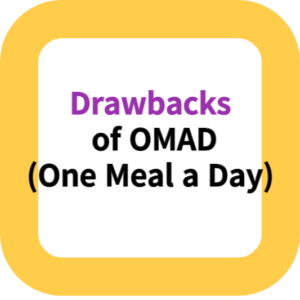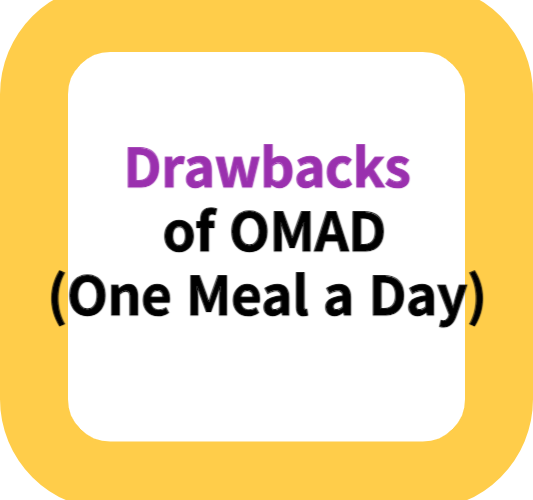Drawbacks of OMAD(One Meal a Day)
Welcome to our latest blog post where we take a comprehensive look at the “One Meal a Day” (OMAD) diet, a dietary trend that’s gaining traction for its simplicity and potential health benefits. However, it’s crucial to understand that this approach comes with significant challenges and potential drawbacks.
In this post, we dive deep into the intricacies of OMAD, discussing the risks of nutrient deficiencies, the increased hunger and cravings that accompany this diet, the potential for developing unhealthy eating patterns, and its impact on metabolic health.
Our goal is to provide a balanced perspective, highlighting the importance of considering all aspects before adopting such a drastic change in eating habits. Whether you’re considering OMAD or just curious about its effects, this post offers valuable insights into how this diet can impact your health and lifestyle.
Join us as we explore the complexities of eating just one meal a day and the implications it has on long-term well-being.
Drawbacks of OMAD(One Meal a Day)

Introduction
The “One Meal a Day” (OMAD) diet is an increasingly popular eating pattern that promises simplicity and potential health benefits. However, like any diet, OMAD comes with its own set of challenges and drawbacks that need careful consideration.
This extended discussion aims to provide a deeper insight into the potential negative aspects of adopting an OMAD lifestyle, covering everything from nutritional deficiencies to impacts on metabolism and eating behaviors.
Comprehensive Nutrient Deficiency Risks
A primary concern with the OMAD diet is the heightened risk of nutrient deficiencies. When all daily nutritional needs are expected to be met in just one meal, it places immense pressure on that meal to be exceptionally well-balanced and nutrient-dense.
However, achieving this is often challenging and impractical, leading to deficiencies in essential vitamins, minerals, and other nutrients. These deficiencies can have long-term health consequences, including weakened immunity, deteriorated bone health, and impaired cognitive function.
Escalated Hunger and Craving Challenges
Restricting food intake to once a day can significantly amplify feelings of hunger and lead to intense, hard-to-control cravings. This aspect of OMAD can be particularly challenging for those transitioning from a conventional eating pattern of multiple meals and snacks throughout the day.
The extended periods of fasting may also trigger psychological stress related to food, making adherence to the diet both mentally and physically taxing.
Potential for Unhealthy Eating Patterns
The OMAD diet raises concerns about potential unhealthy eating patterns, particularly binge eating. The human body’s natural response to prolonged fasting can lead to overcompensation during the single eating window.
This tendency can encourage the consumption of overly large portions, high-calorie foods, or unbalanced meals in an attempt to make up for the extended fasting period, ultimately leading to disordered eating habits.
Negative Impacts on Metabolic Health
OMAD’s impact on metabolic health is a critical area of concern. Limiting food intake to once per day can lead to a slowdown in metabolic rate as the body adapts to the reduced energy intake.
This metabolic adaptation can be counterproductive, particularly for long-term weight management, as it may lead to decreased calorie burning and potential weight gain over time.
Conclusion
The OMAD diet, while offering an alternative approach to eating with its simplicity, poses several significant challenges, including risks of nutrient deficiencies, increased hunger and cravings, potential for unhealthy eating behaviors, and negative impacts on metabolism.
These factors highlight the importance of a balanced and varied diet to maintain overall health and well-being. Before considering such a drastic change in eating habits, it is crucial to consult with healthcare professionals and consider the diet’s suitability for one’s individual health needs and lifestyle.
A mindful and informed approach is key to ensuring that dietary choices contribute positively to long-term health.
